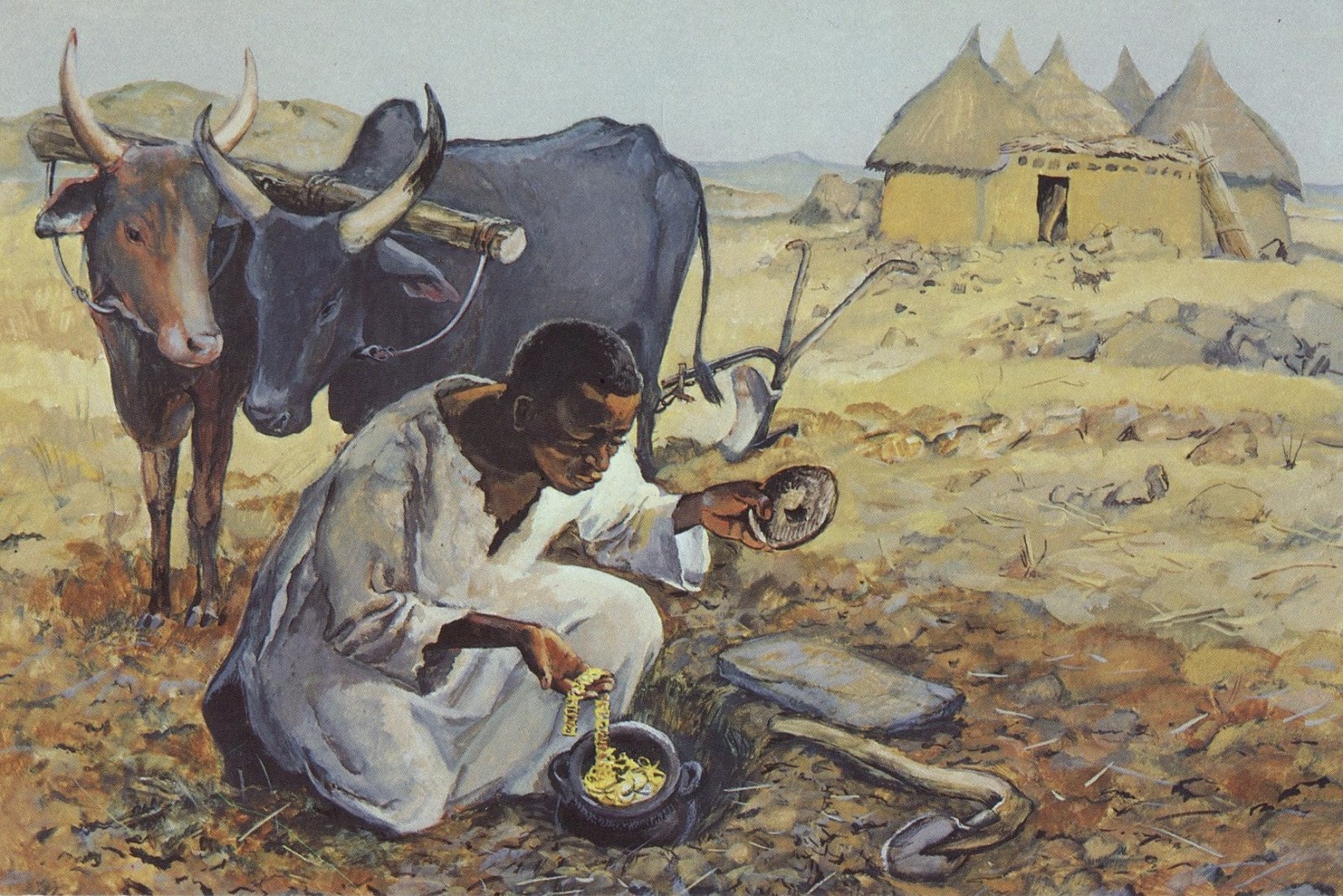Pearls were most valued in Antiquity, actually, until the 19th century when diamonds replaced them.
The key to understanding the parables are the words inside the quotation marks. If you read your Bible, then you know those are the first words Jesus says to the rich young man who wanted to follow him, "Sell everything you have."
The rich man goes away sad. The rich men in the twin parables, after selling everything they had, go away joyful.
Jesus's challenge to the rich has not changed. Sell everything you have. I don't think it ever will.
*art, "The Hidden Treasure," JESUS MAFA 1973, Cameroon (from the vanderbilt divinity library digital archives).






